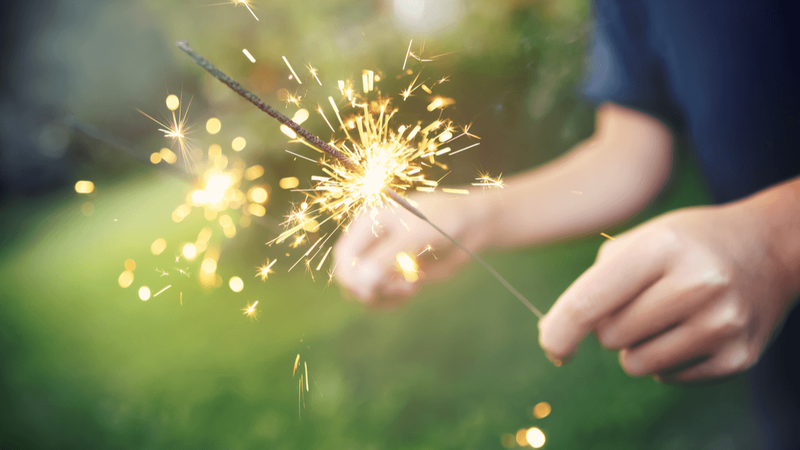Like many Canadians, fireworks and sparklers may be lighting up your night this Canada Day. And if you're hosting your own home fireworks display for your family, a quick call to your home insurance provider to make sure you're covered — just in case — would be a bright idea as well. Because, as careful as you're going to be, sometimes things go wrong: wayward fireworks can cause injury or result in damage to your home or neighbour’s house.
Safety Tips for Setting off Backyard Fireworks

Find the Best Car Insurance Rates
Compare car insurance quotes from 50+ providers in a single search. Start saving money today on the premiums you pay.
Fireworks safety tips
Minimize the chance of injury or property damage this Canada Day with these firework safety tips:
- Check with your town's local bylaws to confirm if fireworks are legal, and if they are, when and where they can be set off. Some cities, like Calgary and Edmonton, for example, specifically prohibit fireworks unless you have a permit. While others, like Toronto, state that fireworks are allowed on private property without a permit, but only on Victoria Day or Canada Day.
- Buy fireworks from a reliable retailer.
- Do not allow children to handle or set off fireworks and watch them closely if given sparklers.
- Carefully read and follow the label directions on fireworks packaging and pay close attention to cautions and warnings.
- Set up your fireworks outdoors in a clear, open space away from buildings, trees and dry grass.
- Keep your family a safe distance away from the area where the fireworks will be set off. And, if you’re thinking about inviting other spectators, adhere to all COVID-19 restrictions in your area.
- Always keep a water hose and several pails of water close at hand.
- To ignite your fireworks, don't use a lighter or matches. Instead, use an igniter stick that is designed specifically for the setting of fireworks.
- Wear protective glasses and never lean over the fireworks. Keep your hair and clothes away from the firework or the fire source being used to light it.
- Do not ignite fireworks when it's windy, as they may not go where you expect them to go.
- If you're impaired (alcohol or drugs), do not handle fireworks.
- Light fireworks on a hard, flat and level surface. Ignite them at arm's length, standing back and keeping your face away.
- Light only one firework at a time and only when they are on the ground. Never try to light a firework in your hand or re-light dud fireworks.
- For duds, wait 30 minutes and then soak them in a bucket of water. Sparklers, when burned out, should be doused in water too.
- Place all spent fireworks and any debris in a bucket of water before tossing them in the garbage.
- If someone gets burned, run cool water over the wound for at least 10 minutes and seek medical attention, if necessary.
Fireworks and your home insurance
If your backyard fireworks show damages your home or a neighbour's property, your home insurance policy would typically cover the damage. The same is true if someone is injured; your policy's liability coverage would provide financial protection if you are sued. But it's important first to make sure that fireworks are not banned where you live. If they are banned — and you go on with the show — home insurance policies typically exclude damage resulting from illegal activities. Check with the local authorities and your home insurance provider before lighting up the sky.
Fireworks are a blast, but only if you celebrate the Canada Day weekend safely. Stay safe and have a great Canada Day long weekend.
Firework safety tip sources: Canada Safety Council, Natural Resources Canada and Toronto Fire Services.
Our Users Say
2,247 reviews on TrustPilot. See some of the reviews here.
Fran
Curtis
Robert Clarkson
Vincenzina Perri
Keith
Dev
Georgia
Shirley Munro
Hoang Tran
Alnoor
Michael Benninger
Gene
D on
Robert
Remonia Thompson
Rich
Luis